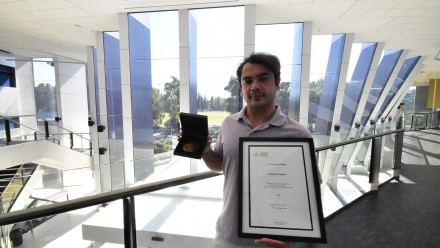Research
The CPI will consolidate the efforts of many research groups who have established and are investigating different patient cohorts. The expected collective benefit from a combined effort is to enhance the pace of translation by implementing an efficient platform for discovery and translation that all groups can access. Technical developments are accelerated by the assembled expertise and progress will be synergistic. We expect complementary information about disease pathways to arise from concurrent analysis of autoimmune, autoinflammatory and immune deficiency diseases. Our assembled significant and diverse patient cohorts will ensure access to both monogenic and more genetically complex cases in each of the disease categories under investigation in the centre. By including many different research groups and patient cohorts in the CPI, where all groups will be able to access streamlined sequencing and technology for proof of causation, the CPI will alleviate bottlenecks to translation and ensure maximum clinical benefit to a diverse group of patients at the earliest opportunity. In the past decade, analysis of patients from within our established cohorts has provided the basis for discovery projects that have yielded proof-of-principle for components of the CPI.
We are still recruiting to these cohorts. Additional patient cohorts will be analysed in the centre. For rare diseases, access to international cohorts of similar patients increases our chances of identifying and confirming causal alleles, and allelic series, which are important for understanding gene mechanism.
CPI patient cohorts: established and recruiting
Immune deficiency
- Primary antibody deficiency (PAD)
- The ANZADA (Australia and New Zealand Antibody Deficiency Allele) cohort led by Professor Cook and Associate Professor Fulcher.
- Primary immune deficiency (PID)
- Ulm cohort: severe combined immunodeficiency cohorts led by Professor Schwarz.
- Freiburg Cohort: (S)CID cohort led by Professor Ehl and Professor Schwarz.
Autoinflammatory diseases
- Vasculitis
- Monash and Canberra cohorts with ANCA-positive focal necrotising glomerulonephritis and/or systemic vasculitis. The Monash cohort is led by Professor Kitching and the Canberra cohort is led by The Canberra Hospital's nephrologist, Dr Giles Walters, and immunologist, Professor Cook.
- Children’s Hospital at Westmead (CHW) Kidney Gene Bank. Associate Professor Alexander and colleagues have identified families with vasculitis and autoimmune and vascular diseases.
- Systemic Juvenile Idiopathic Arthritis; Nonbacterial osteitis
- Recruited by Dr Grewal-Singh.
- Haemophagocytic lymphohistiocytosis (HLH)
- Australian cohort from Sydney, Canberra, Melbourne and Brisbane unexplained by known genetic causes will be analysed in collaboration with Dr Ehl.
- Sarcoidosis
- Cohort recruited by Professor Cook.
Current Research Projects
- Novel assays to rapidly and efficiently determine the effects of point mutations on immune system function
- Developing a CRISPR/Cas9 system to rapidly replicate and examine patient cellular phenotype
- Novel geno-phenotype biomarkers: improving diagnosis and determination of outcomes in SLE
- Utilising the CRSPR/Cas9 system to evaluate novel variants in aHUS
- Using genome-editing tools to generate mouse models based on genome-based mutation discovery
- Targeting SLE treatment based on geno-phenotype: pre-clinical trials in novel mouse models
- Prediction of patient outcomes and response to treatment based on geno-phenotype
- Using peripheral blood phenotype to improve identification of pathogenic mutations
- Screening for novel molecular pathways in PID
- Understanding the contribution of copy number variation in autoimmune disease
- Identification of pathogenic variants in uncharacterised disease genes through mining with gene network information
- An autoimmune disease gene and pathway ontology for mining human genetic variation data
- Novel inflammatory pathways influencing the initiation and outcome of vasculitis
- Treating inflammatory kidney injury by targeting pathway-specific humoral and cellular mediators











